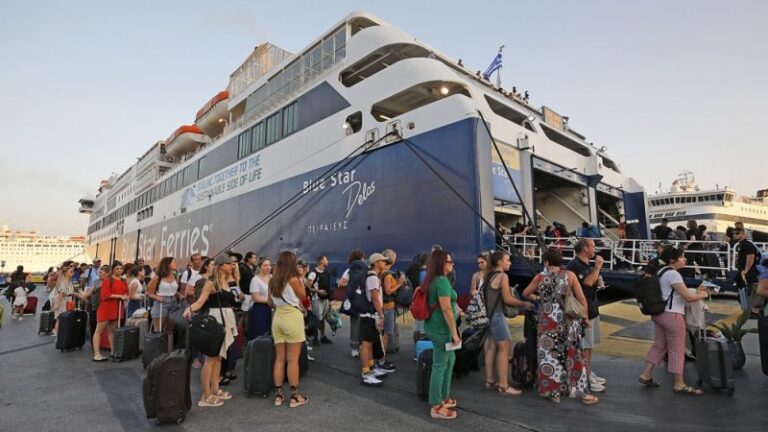Greece needs to reduce overexploitation and protect water resources and coastal areas if it wants to maintain a healthy tourism industry on its mountainous mainland and coastal islands, the Greek ombudsman said in a report Thursday.
Attracted by ancient ruins, the turquoise Mediterranean and consistently sunny weather, Greece is expected to attract around 33 million visitors in 2023, 5 million more than the previous year.
But in a report published on Thursday, the ombudsman warned of growing environmental risks and called for urgent reforms.
“Our economy is highly dependent on tourism, making it even more necessary to manage it in a sustainable way,” the report said. Greece “cannot allow its potential to be exhausted, wasted and its tourist destinations to lose their attractiveness over time.”
Tourism accounts for more than a quarter of Greece’s economic output and provides the annual income of around two million Greeks, according to the report, which is the first such report published by the Greek Ombudsman on the sector since it was established more than 25 years ago.
Revenue is expected to rise to 21 billion euros in 2024 from 20.5 billion euros last year, a major boon for an economy emerging from a decade-long debt crisis.
Santorini, a social media favorite, is a tiny island with a population of 15,550, but the report said it attracts more than 5.5 million tourists a year, double the number in 2012, and the island’s annual income is estimated at 1 billion euros.
“In Santorini, even tourists themselves complain about the large numbers of tourists,” the report said.
The report called for tougher regulations to reduce coastal construction and slow deforestation that creates conditions for flooding, and for greater protection of water resources in the face of “enormous” demand for drinking water, swimming pools and water parks.
“Tourism is an area where the lack of vision and strategy is particularly evident. There is a critical need for clear tourism governance measures to be put in place,” the report said.
Read more at Euractiv


